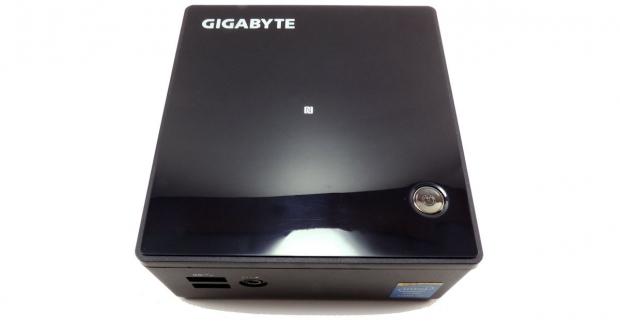
The Bottom Line
Introduction, Specifications, and Pricing
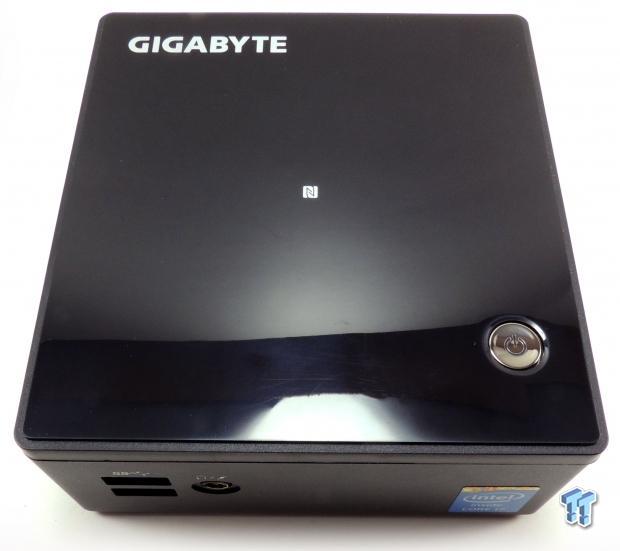
A few years ago, GIGABYTE launched a new type of product into the market, a small form factor PC called BRIX. GIGABYTE teamed up with Intel to design and produce a desktop PC that you can hold in the palm of your hand. To achieve such a small design, you need an extremely integrated system-on-chip (SOC) because a separate CPU and chipset would require too much PCB space. Well, Intel's Broadwell micro-architecture is perfect for this scenario.
The BRIX s BXi7H-5500 is smaller than a brick, and much more interesting. The BXi7H-5500 carries some of the latest technologies, like Wireless AC and NFC, and also provides a strong backbone for storage and connectivity. Today, I will venture into GIGABYTE's latest iteration of their BRIX product line by taking a look at the BXi7H-5500.
Specifications
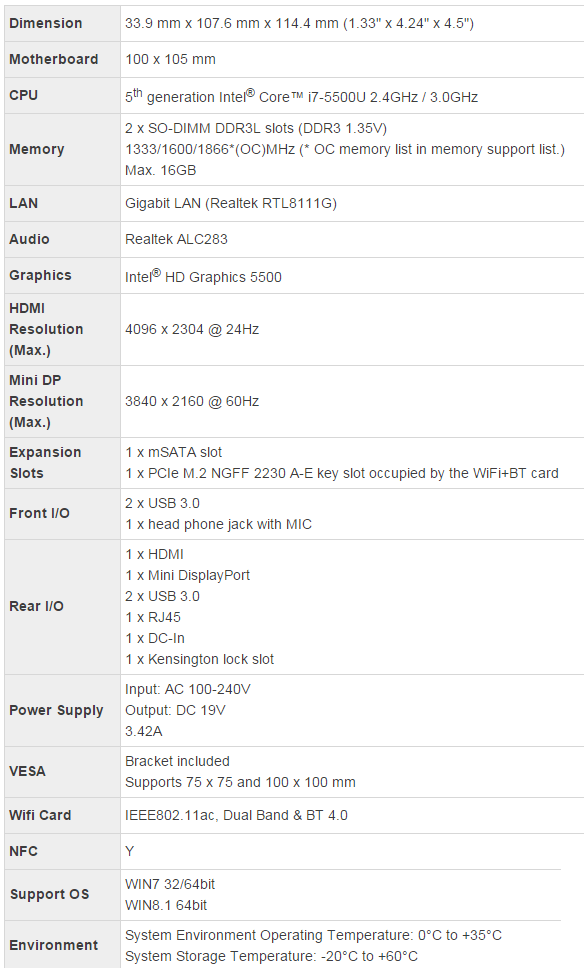
GIGABYTE is utilizing Intel's i7 5500u 5th generation Core I processor, which features two cores, four threads, and a 3.0GHz turbo clock - all at only 15W TDP. The i7 5500u supports 16GB of DDR3L at 1600MHz, and it uses Intel's HD5500 video card, which has two graphics cores. GIGABYTE has also added a NIC, provided support for mSATA, and even provided the option to mount a 2.5 inch SSD or HDD for much larger storage. There is also a wireless AC card in a smaller M.2 slot that supports Bluetooth 4.0. An NFC controller is also present, as are four USB 3.0 ports, a DisplayPort, and a HDMI port that supports 4K.
Pricing
The GIGABYTE BRIX BXi7H-5500 should retail for around $510, making it just $10 more expensive than the version without the taller lid supporting the 2.5-inch drive. It also makes it $100 more expensive than the Intel NUC5i5RYK. For that extra $100, you get a much faster CPU and more storage options.
Packaging and System
Packaging
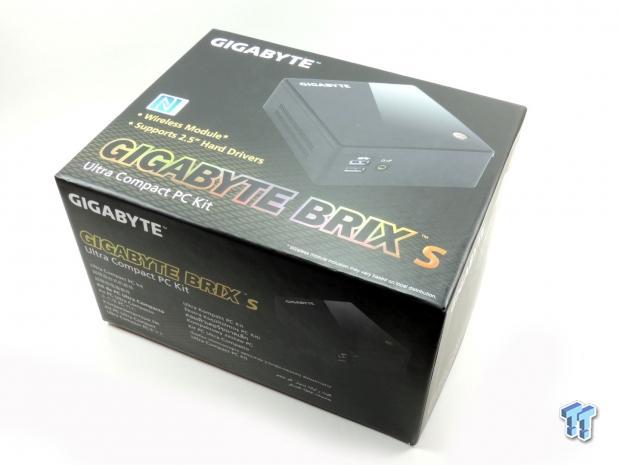
The box has a simple design, but the lettering is quite flashy. There aren't too many specifications on the box since the model has a different configuration in each region; however, this model has a M.2 wireless module, NFC, and room for a 2.5 inch SATA drive.
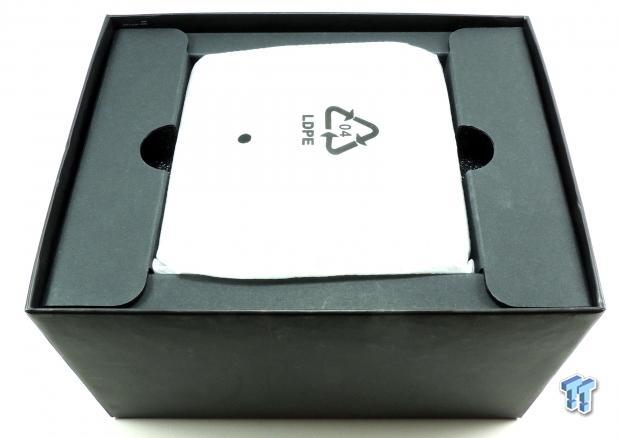
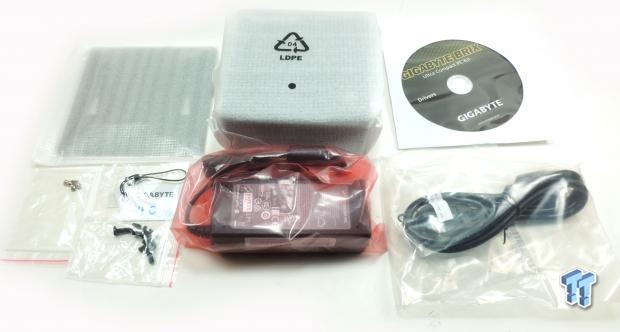
The BXi7H-5500 and the accessories are all packaged so that everything is protected from the elements.
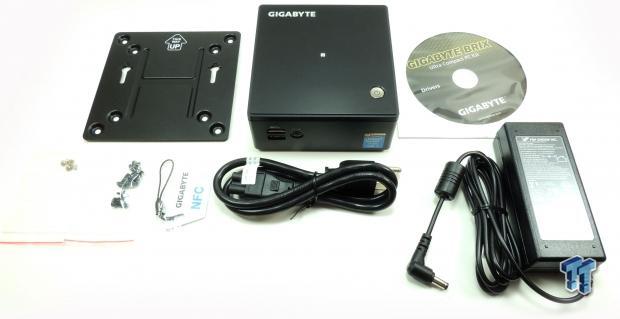
The provided accessories include a VESA mounting bracket with screws, an AC/DC PSU and cable, a NFC tag, and a driver DVD.
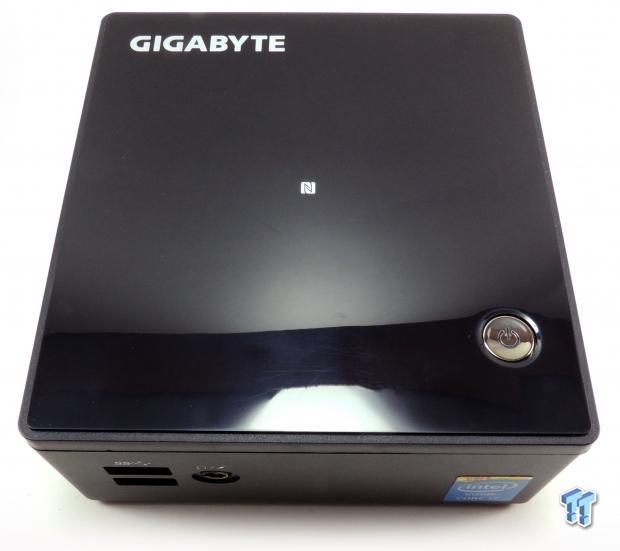
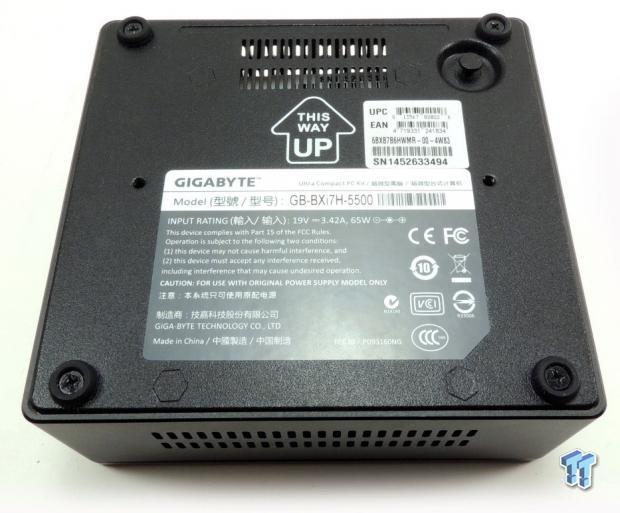
The top of the unit sports the tiny NFC logo and a single power button. The bottom has screw holes for the VESA mount and four rubber feet to secure the BRIX on a table.
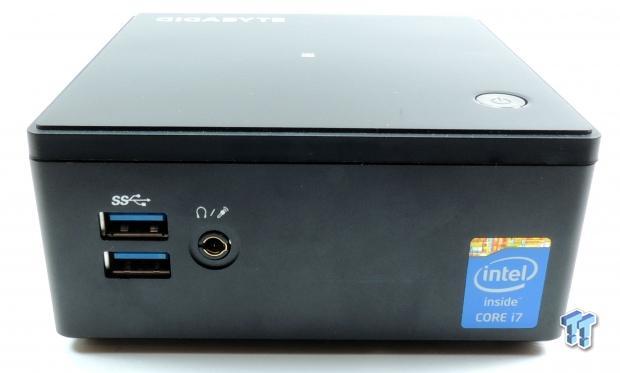
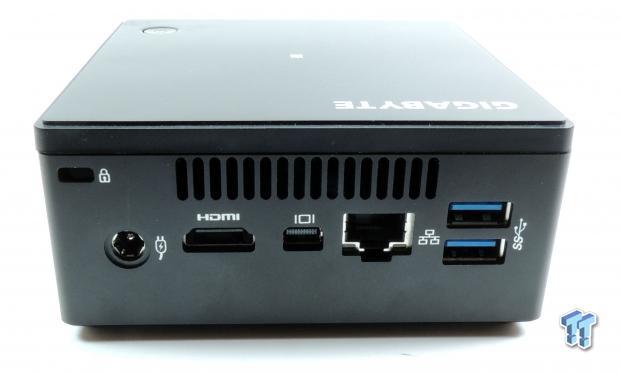
The front has two USB SuperSpeed (5Gbps) ports and a headphone/microphone jack. The back features the following ports: Kensington lock, PSU power, HDMI, DisplayPort, RJ-45 LAN, and two USB 3.0 ports.
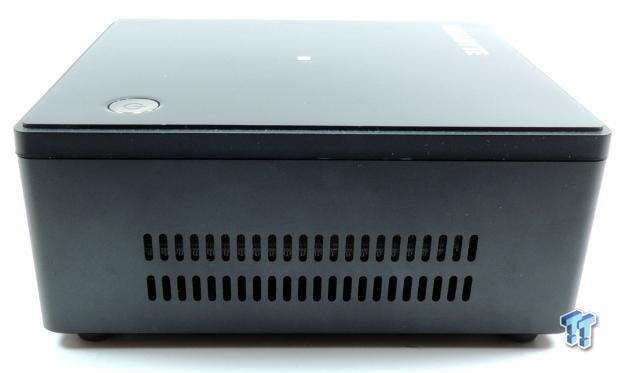
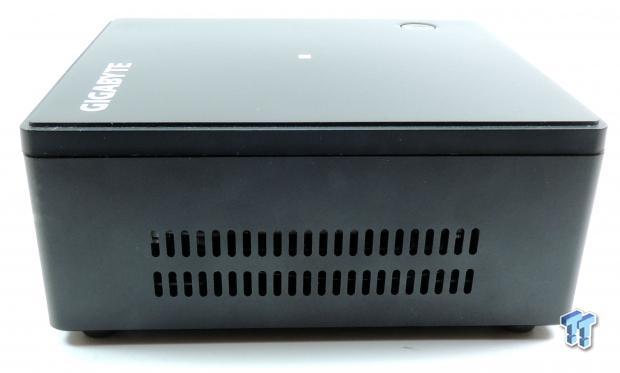
The sides just have vents for airflow.
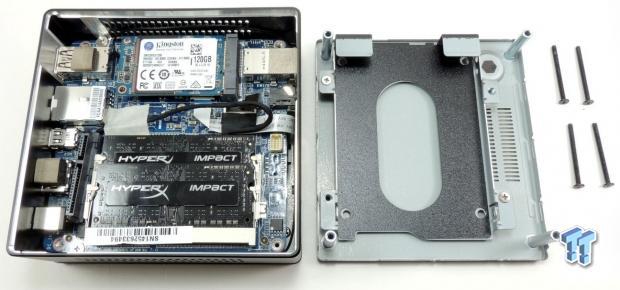
Removing the top is simple, and requires only a standard Phillips-head screwdriver.
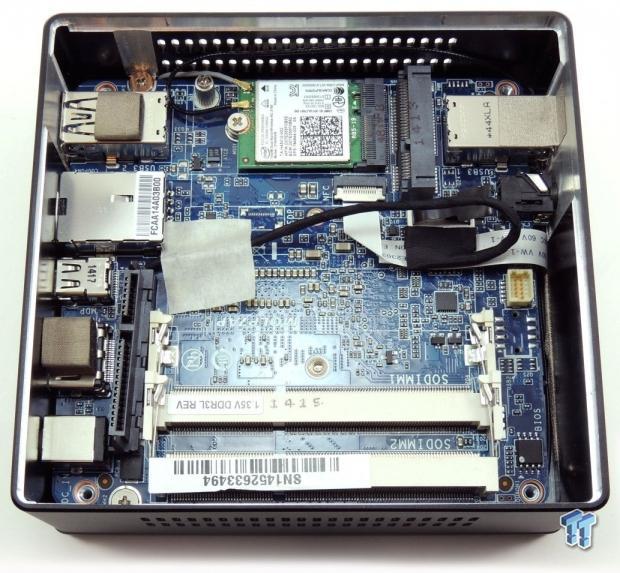
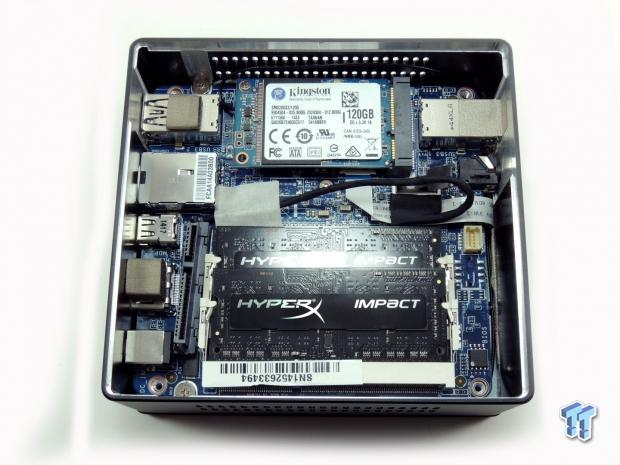
Installing the memory and mSATA drive is also simple; you can add a dedicated 2.5 inch drive as well, which is one of the main selling points of this model.
Teardown
The Teardown
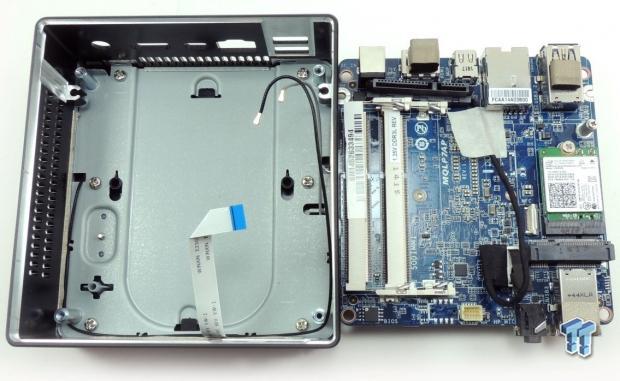
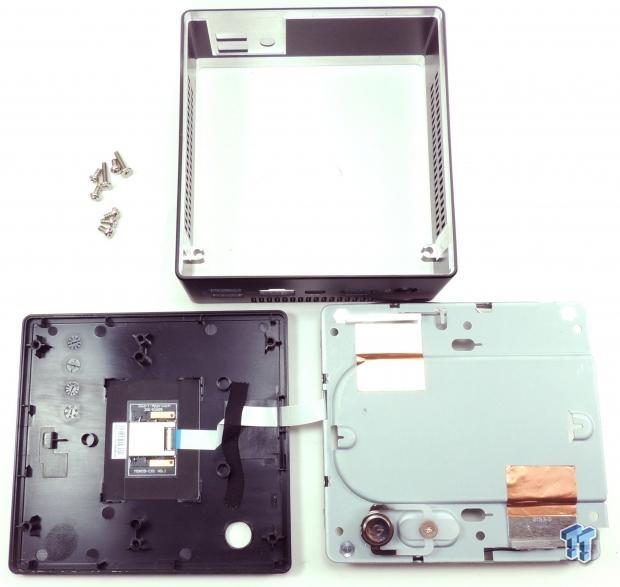
Removing the PCB from the case is quite simple; however, no end-user should need to do this. I also disassembled the case to reveal the NFC controller and the antennas for the Wi-Fi/BT.
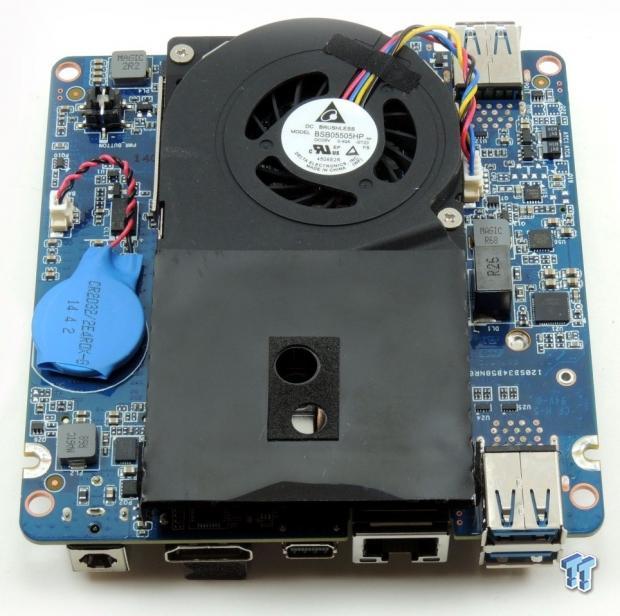
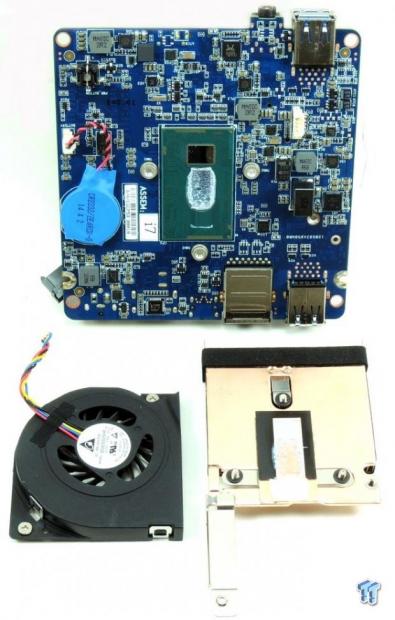
Here you can get a glimpse of the blower fan and the fan removed from the PCB. This setup is basically identical to the Intel NUC I reviewed about a month ago. The CPU used in the BRIX trades one graphics core for extra CPU horsepower and cache, when compared to the NUC's CPU, but both CPUs have the same TDP of 15W.
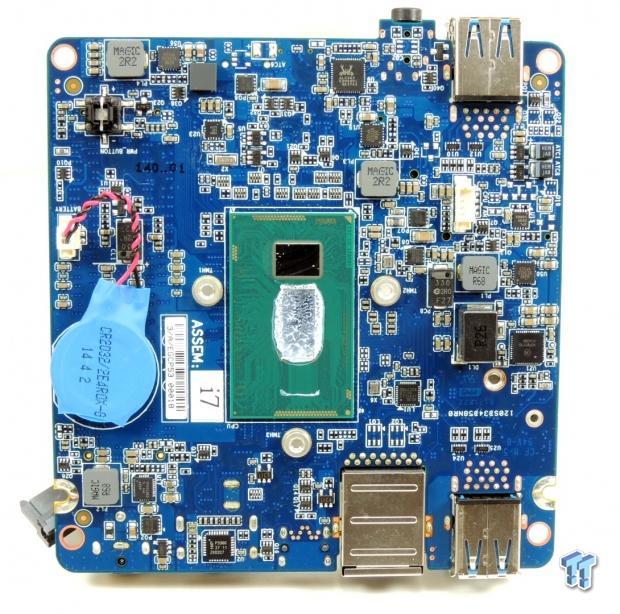
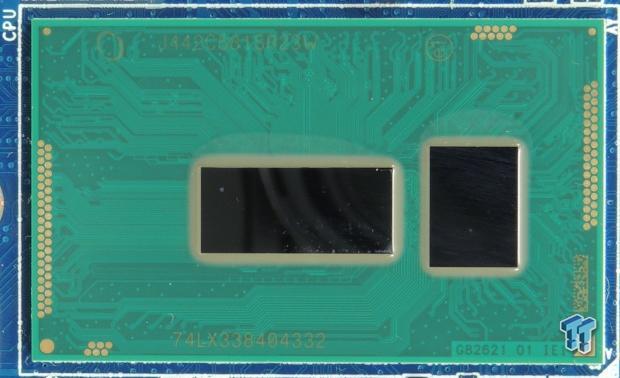
Here is the side of the PCB with the interesting stuff. Intel's i7 5500u is an exciting chip featuring Intel's latest Broadwell microarchitecture. The i7 5500u can turbo to 3GHz, it has two cores with four threads (resulting from hyper threading), it offers two HD graphics cores (Intel HD5500), and its PCH supports four USB 3.0 and a few SATA 6G ports.
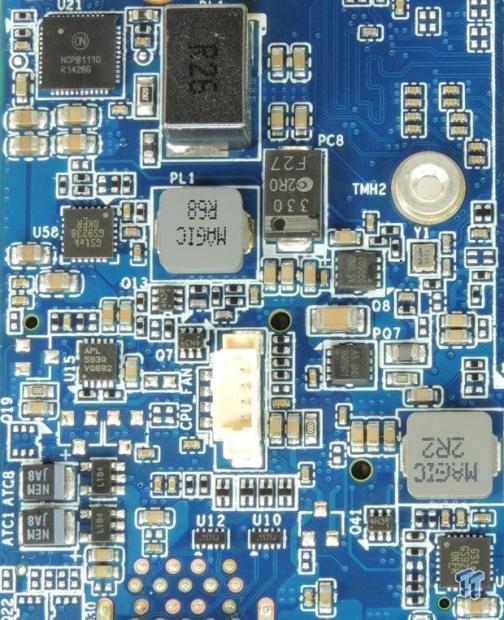
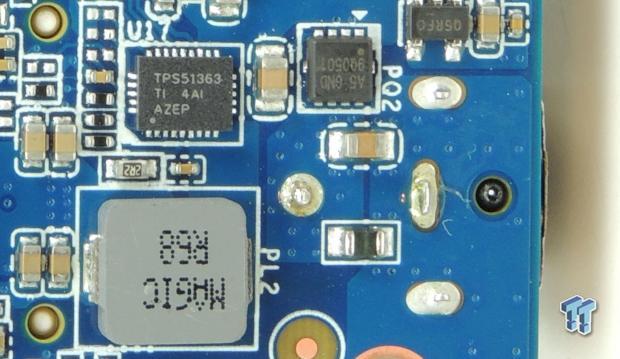
On the left is a bunch of chips used to provide power to the onboard devices like the CPU and memory. The NCP81110 is a single phase PWM+drivers+MOSFETs with the VRD12.6 standard for Broadwell; it powers the CPU. There are three GSTek GS9238 (two shown here), which are 8A buck converters used to power the memory and PCH. On the right we have the Texas Instruments' TSP51363, which is a 22v at 8A DC/DC converter that is responsible for handling all of the power that comes into the BRIX. This converter is a critical part when it comes to power delivery, and the choice of the Texas Instruments part is sound.
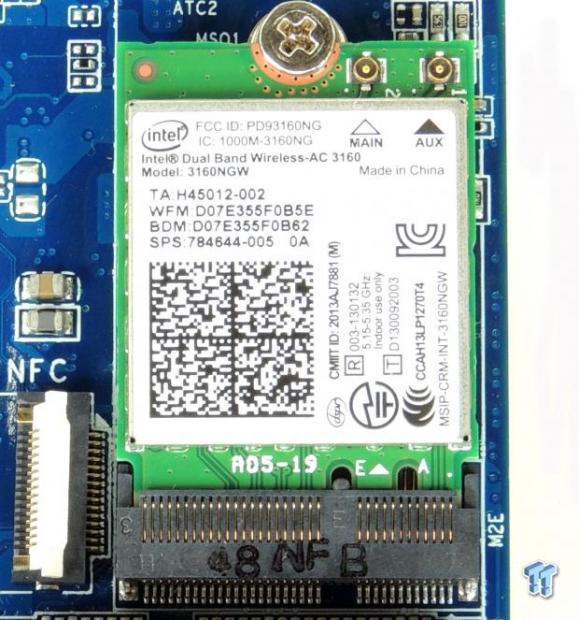
This is Intel's Wireless AC 3160 Dual Band Wi-Fi/BT card that supports Wireless AC to 867Mb/s. It is in the small M.2 form factor, and we will see how it performs later in our review.
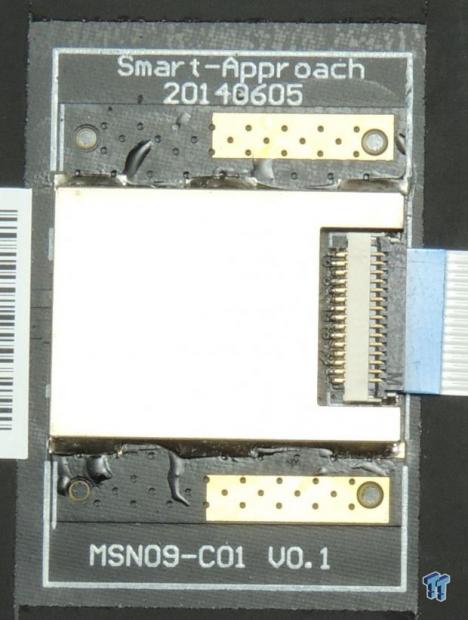
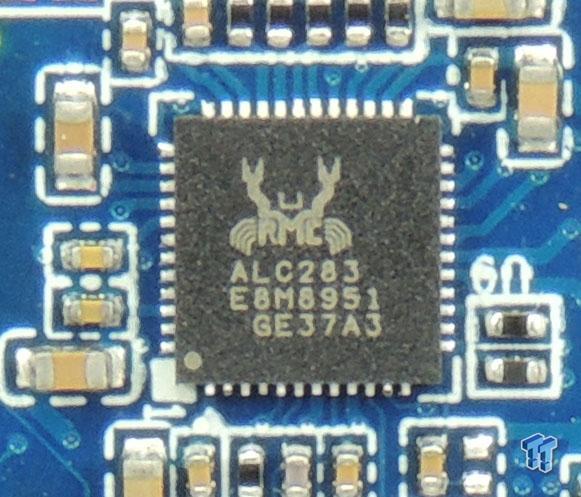
This Smart-Approach NFC controller uses a NXP chip for NFC. The Realtek ALC283 is used for audio.
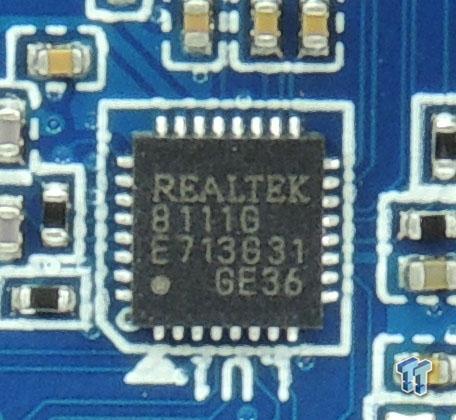
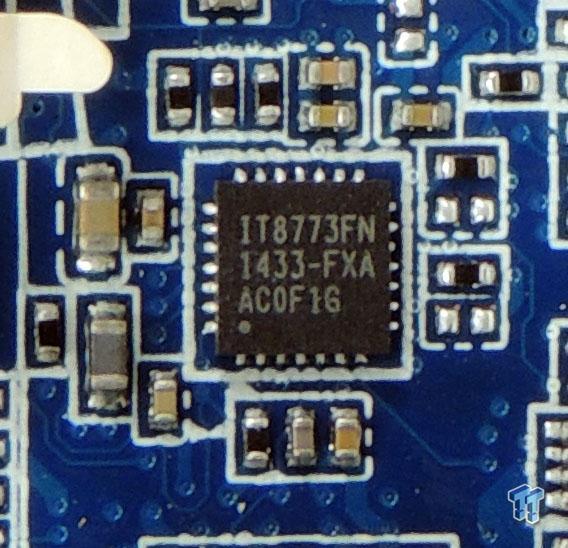
The Realtek RT8111G is used for the GBit LAN port, and the IT8773FN is the Super I/O in charge of monitoring and controlling temperature and voltage.
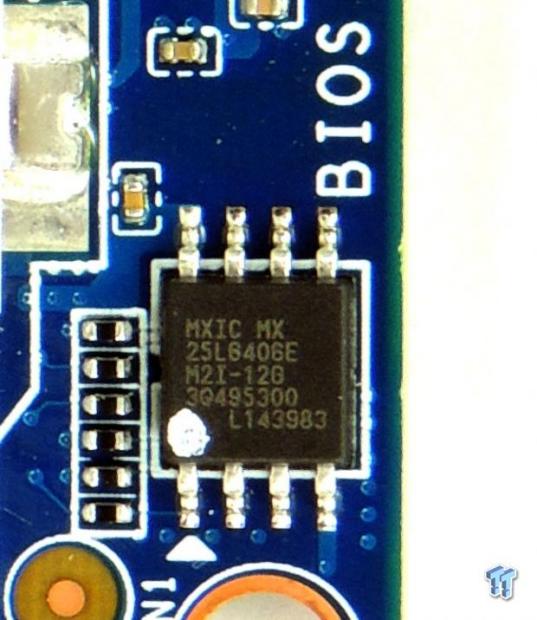
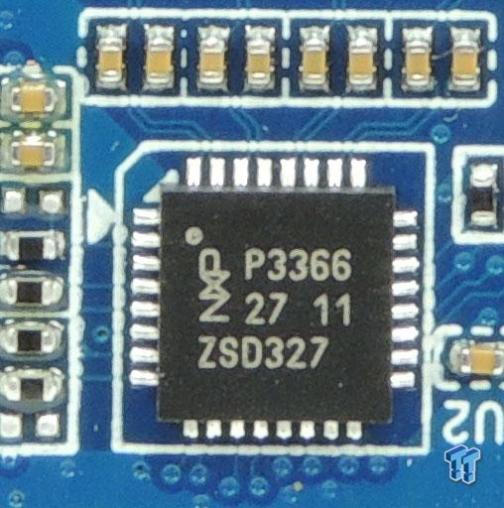
A single 64Mbit/8MB BIOS ROM is used for the UEFI, and this NXP P3366 is a level shifter for the HDMI port.
BIOS and Software
BIOS
GIGABYTE's UEFI allows you to use the mouse. There is no fancy GUI, but you don't really need one considering you won't be tuning anything; the CPU can't overclock, and you just set things up once and get out.
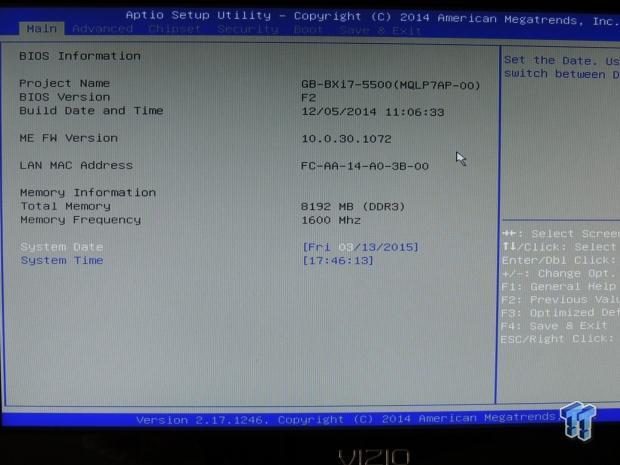
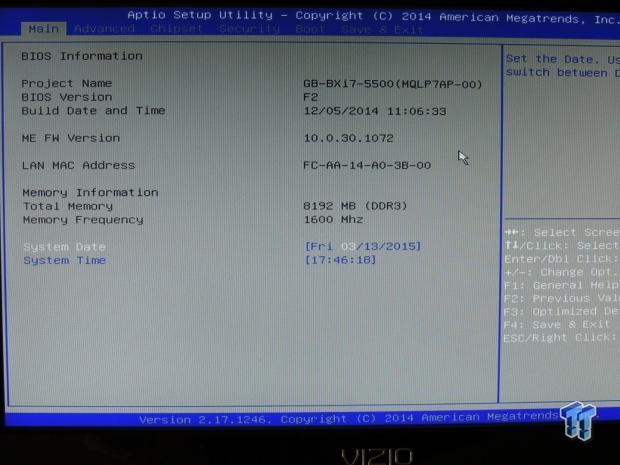
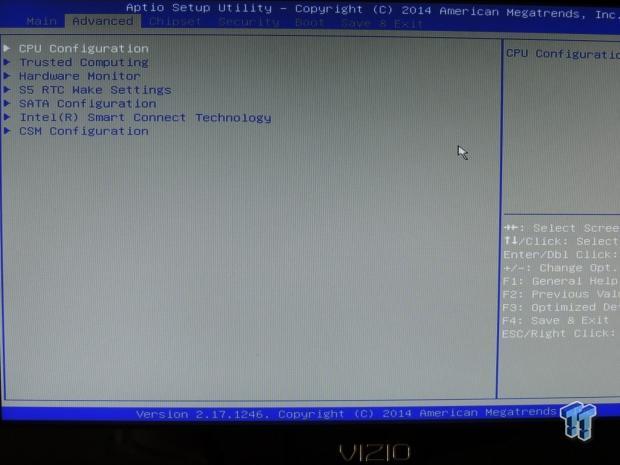
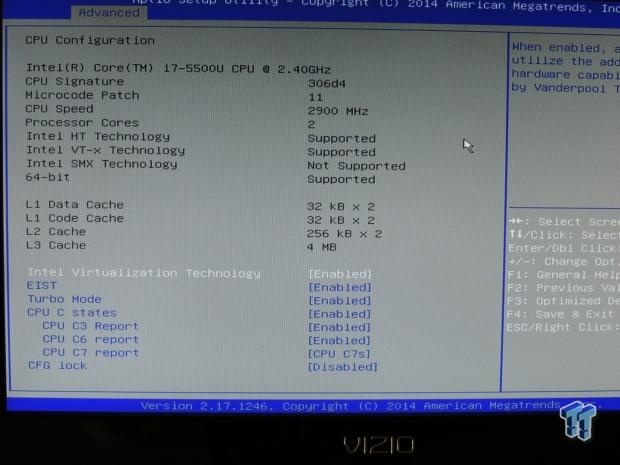
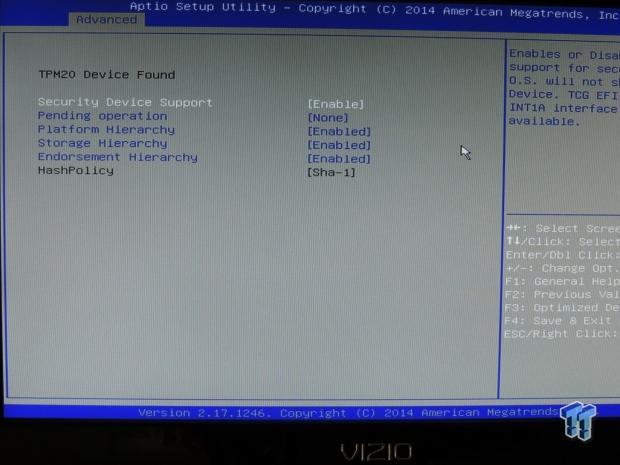
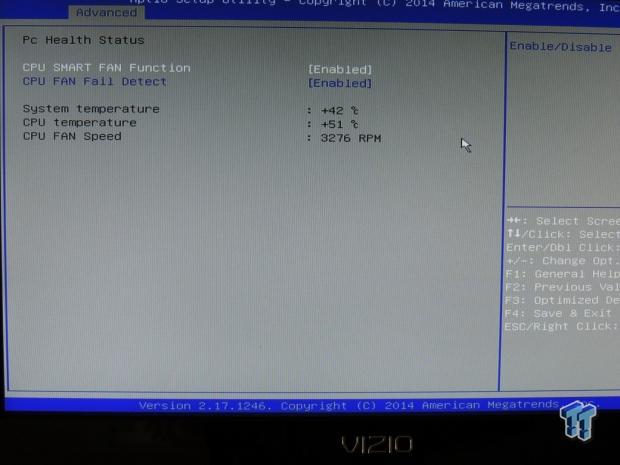
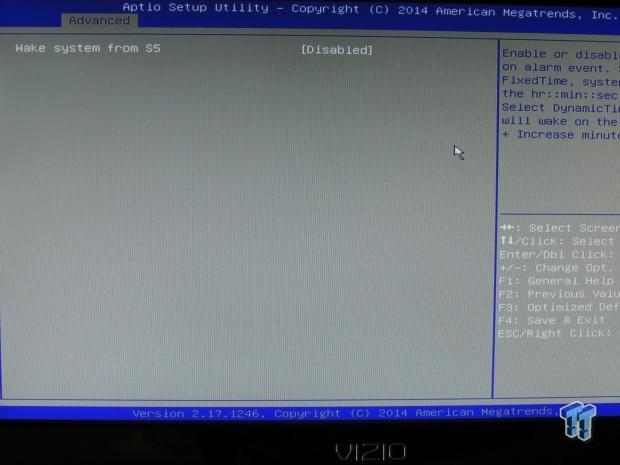
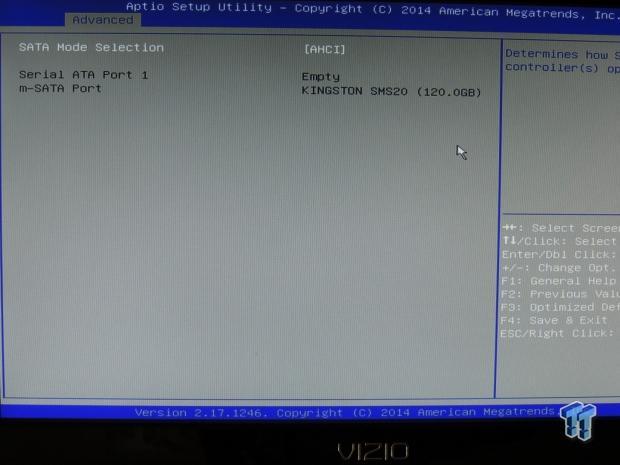
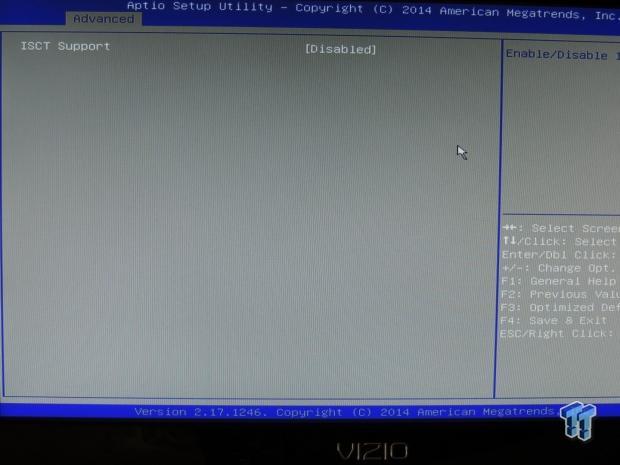
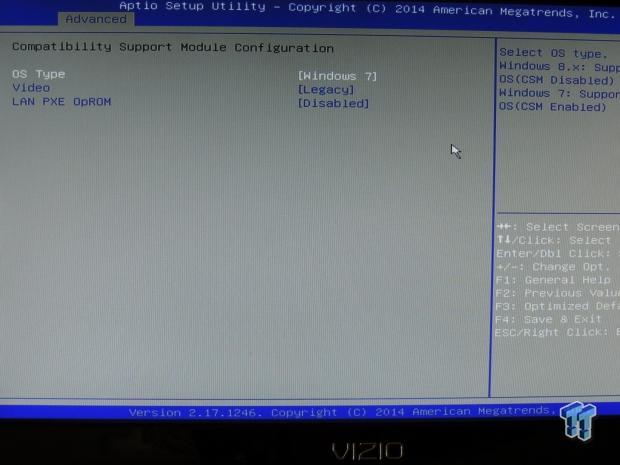
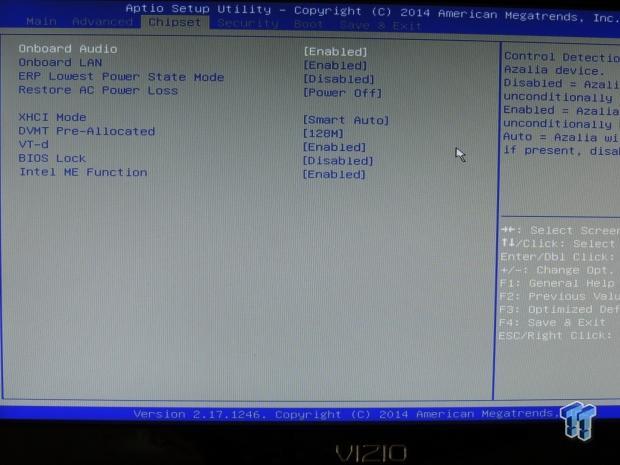
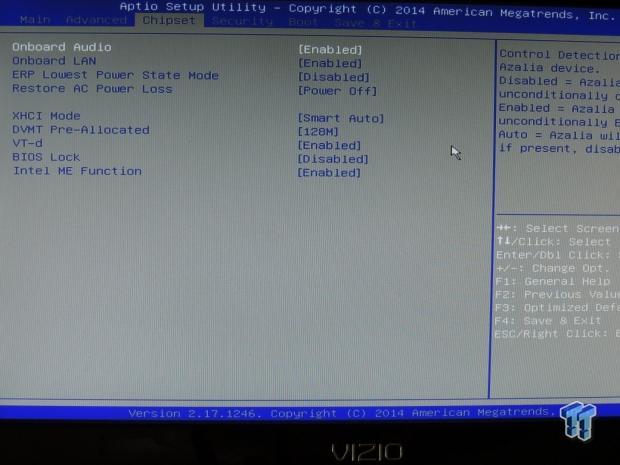
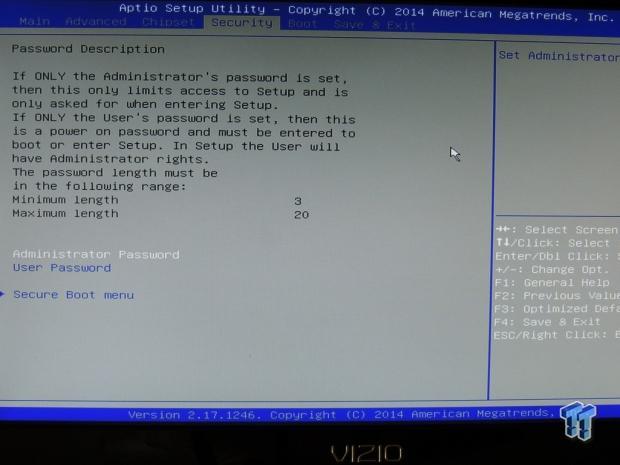
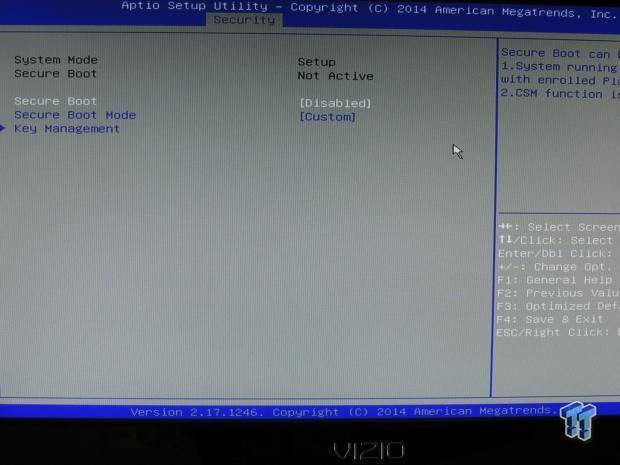
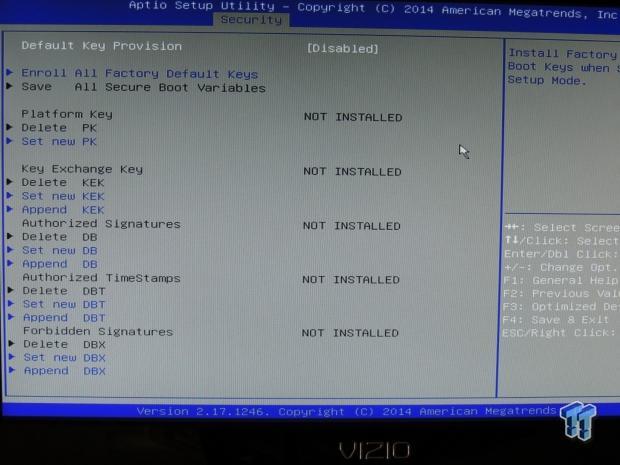
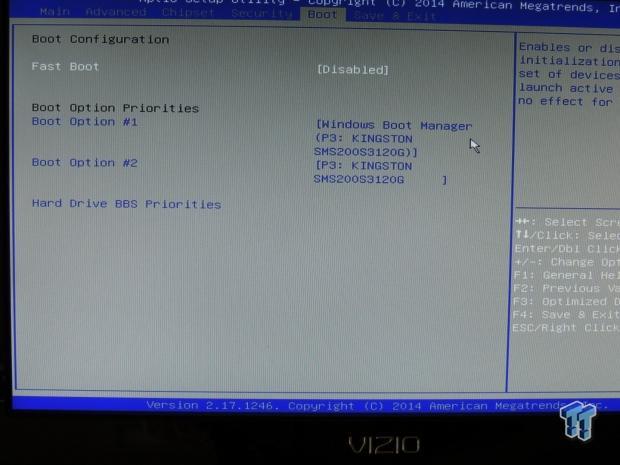
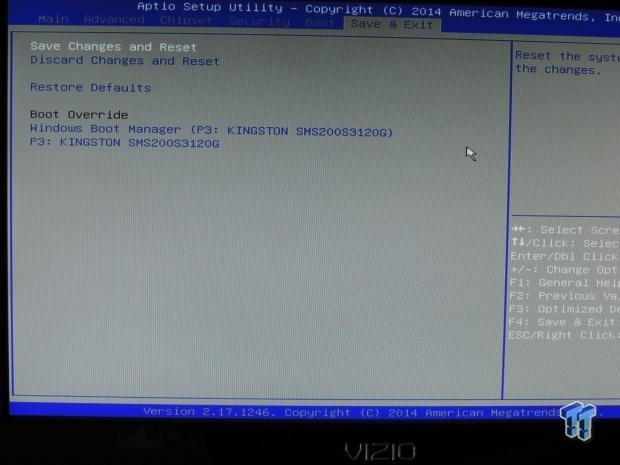
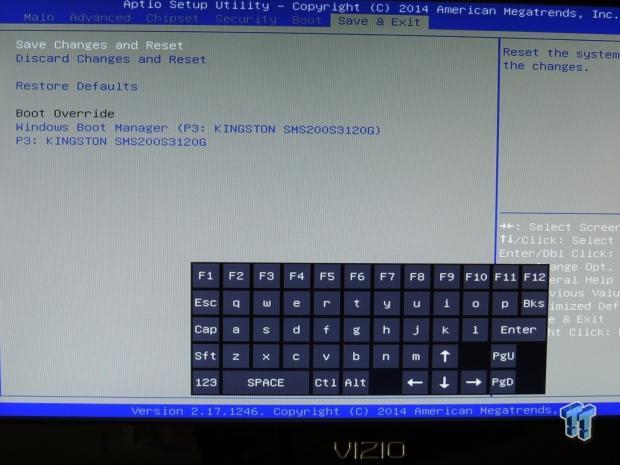
Software
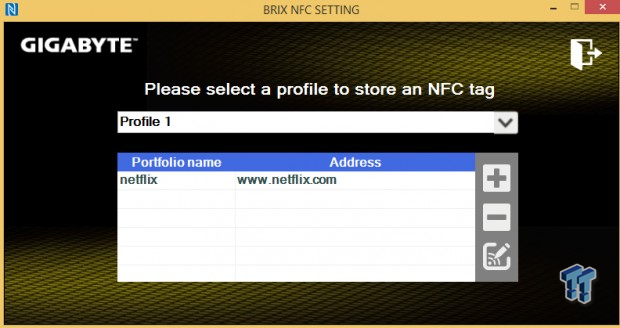
There isn't much software, but GIGABYTE does provide a NFC application to program the NFC tag. I have it set to go to Netflix, and it works as advertised.
Test Setup and Benchmarks
Test Setup

There isn't much to put into the setup other than a drive and some DDR3L. I used some Kingston HyperX Impact 8GB (two 4GB) rated at 1600MHz and a Kingston 120GB mSATA SSD.
CPU, Memory, and System Benchmarks
CINEBENCH 11.5
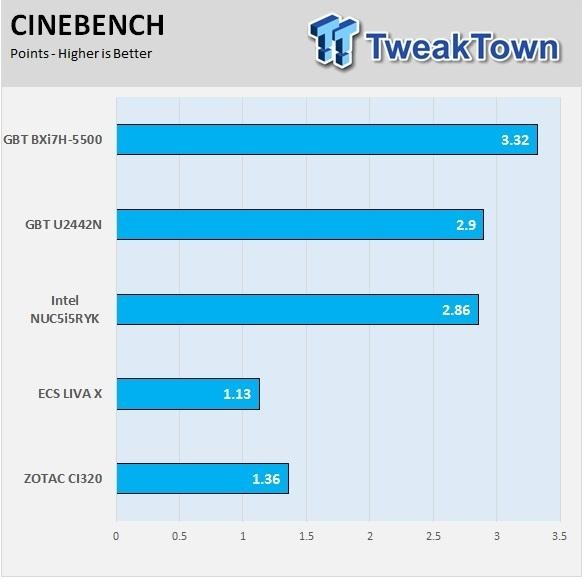
HyperPI
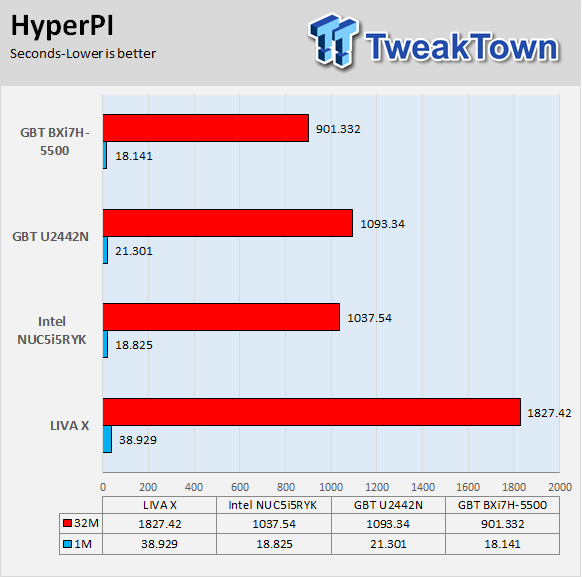
AIDA64 AES and HASH
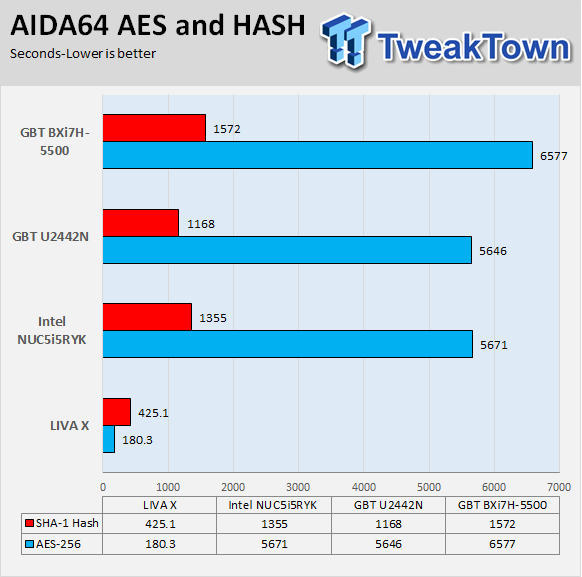
wPrime
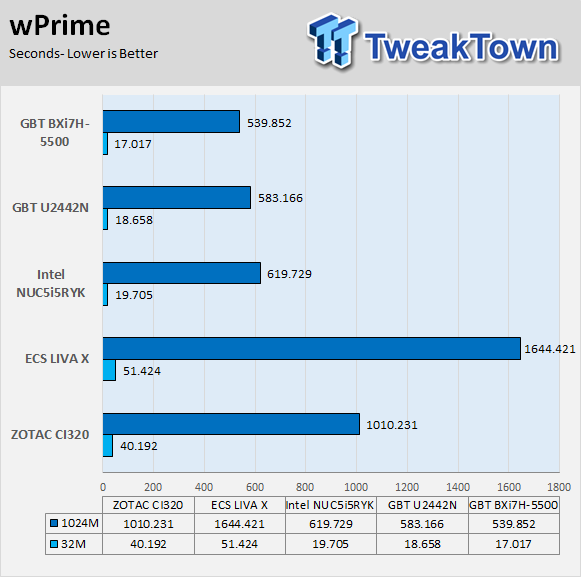
AIDA64 Memory
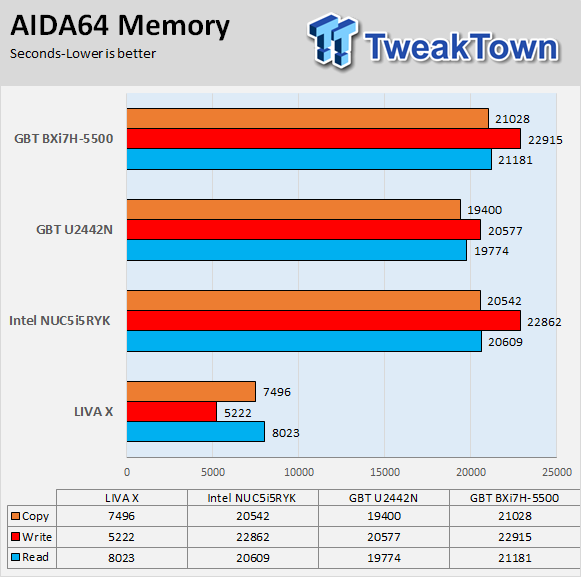
PCMark8 Home Test
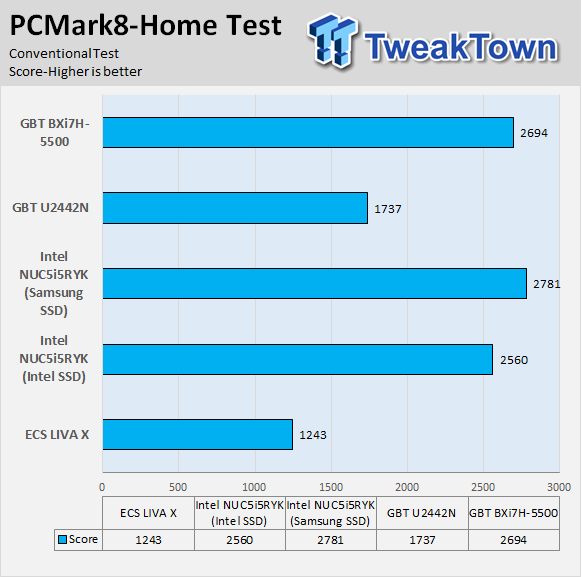
PCMark8 Work Test
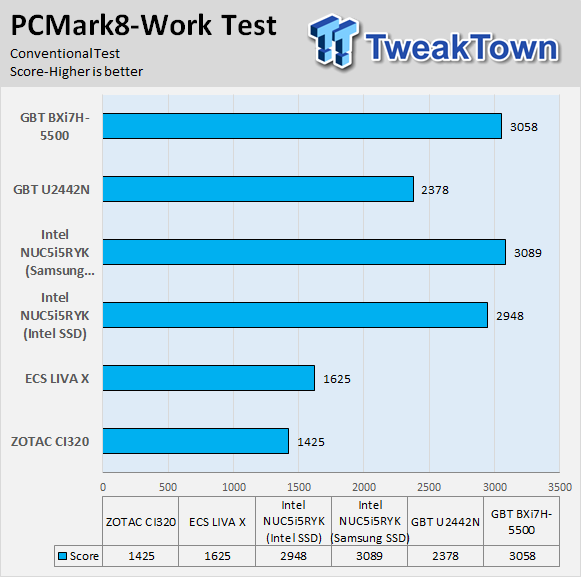
Graphics Benchmarks
3DMark11
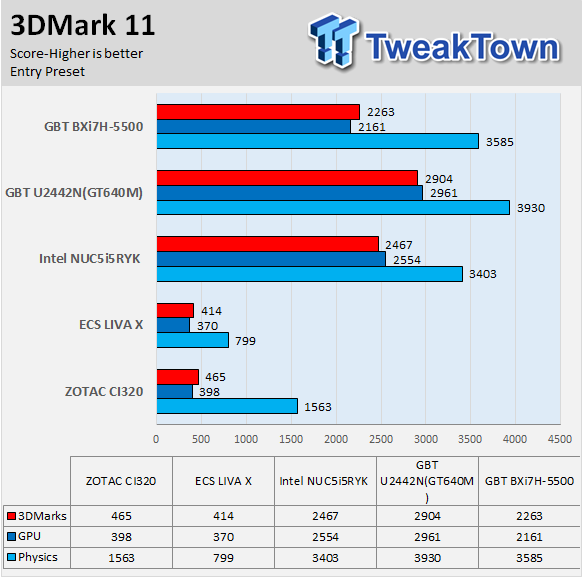
UNIGINE Heaven 4.0
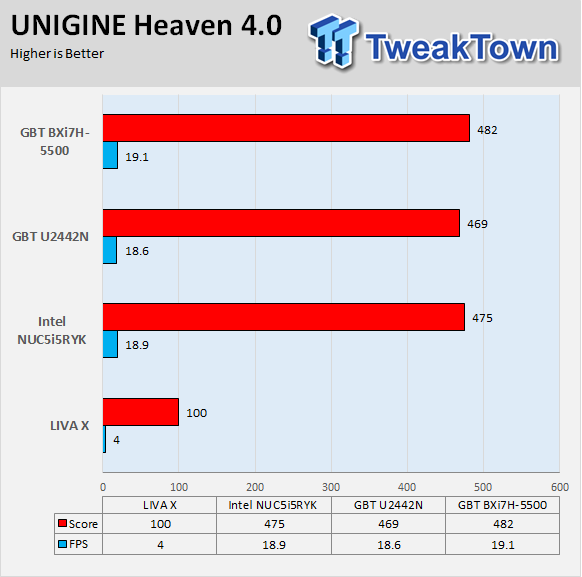
Lost Planet 2 DX11
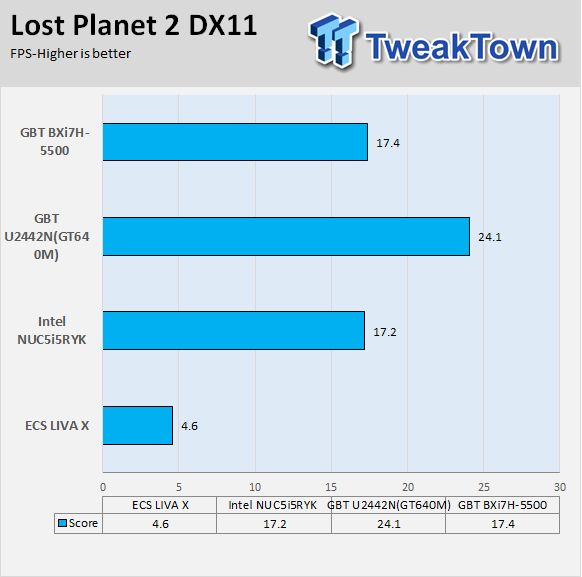
Resident Evil 6
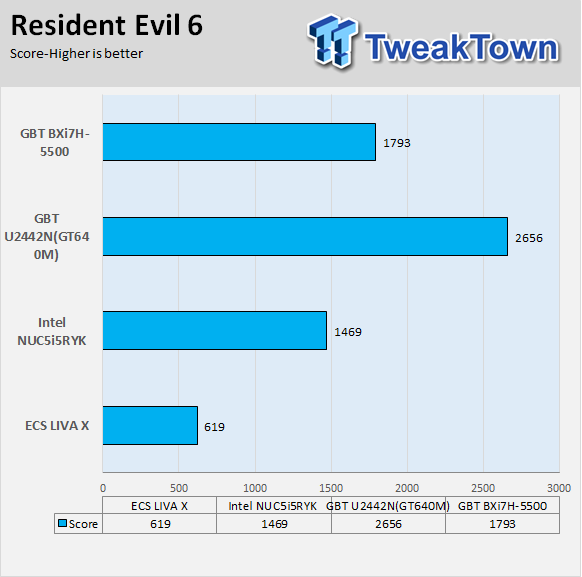
The Intel NUC and this GIGABYTE BRIX both use Intel's 5th generation Core I series processors. The BRIX uses the i7 5500u, and the NUC uses the i5 5250u; they are almost identical except that the BRIX's 5500u has much higher stock and turbo frequencies than the NUC's 5250u, and it also has 4MB of L3 cache as opposed to 3MB on the NUC. Both have the same TDP, but it does seem the 5500U is the clear winner in the CPU and even some GPU benchmarks.
There is also another difference: the NUC's 5250u has three graphics cores (Intel's HD6000), and the 5500u has only two graphics cores (Intel's HD5500). What is interesting is that the 5500u does better in the gaming benchmarks because of its greater cache and higher CPU speed, even though its specs define it as having lower performance graphics.
System IO Benchmarks
Storage and Network Performance
CrystalDiskBench-Read:
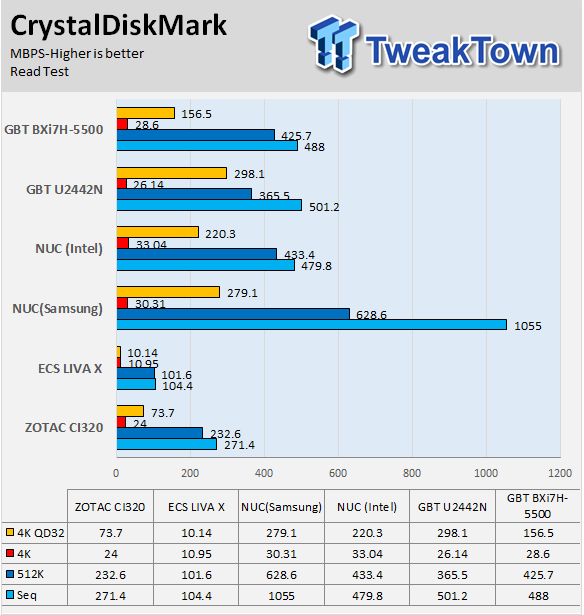
CrystalDiskBench-Write:
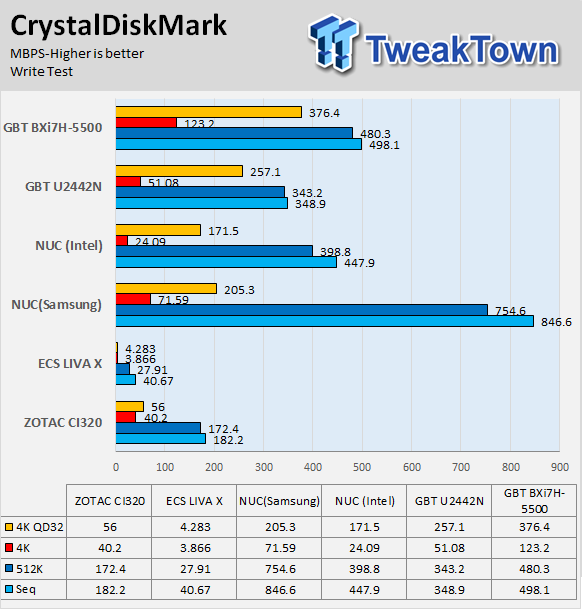
Diskbench USB 3.0 Speed:
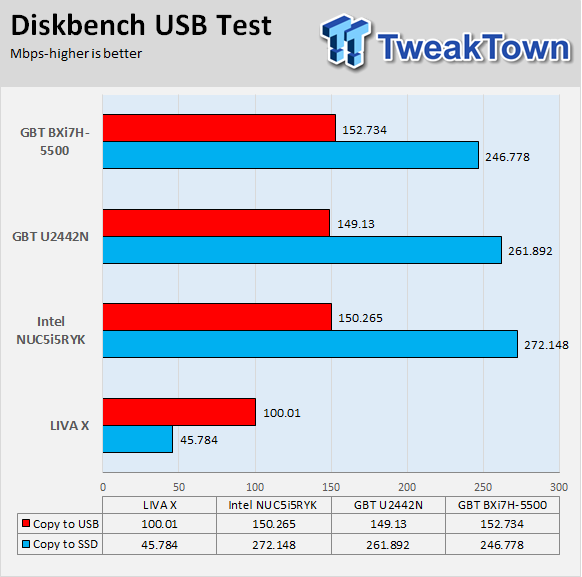
ixChariot Network Throughput:
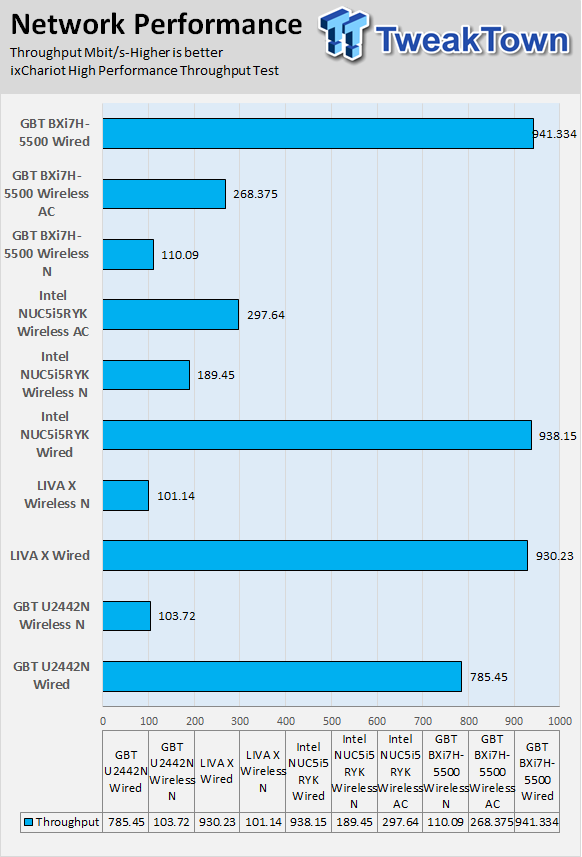
I did expect these numbers for the mSATA versus the much faster M.2 drives I tested on the NUC. However, you have more choices with mSATA as of this moment. In network and USB tests, the results were also as expected. The performance is solid, but it's nothing ground breaking.
Temperature and Power Consumption
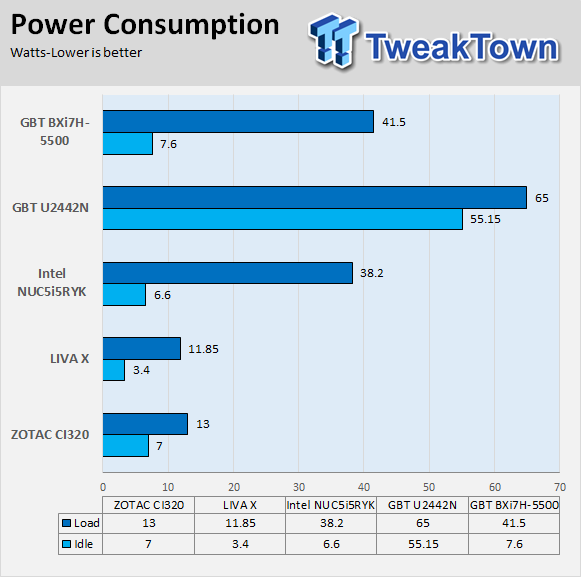
While the NUC and the BRIX have CPUs of the same TDP, the BRIX has a higher performance CPU, and it only draws a little more power. The huge delta that I liked seeing on the NUC is also present on the BRIX as the CPU throttles down at idle.
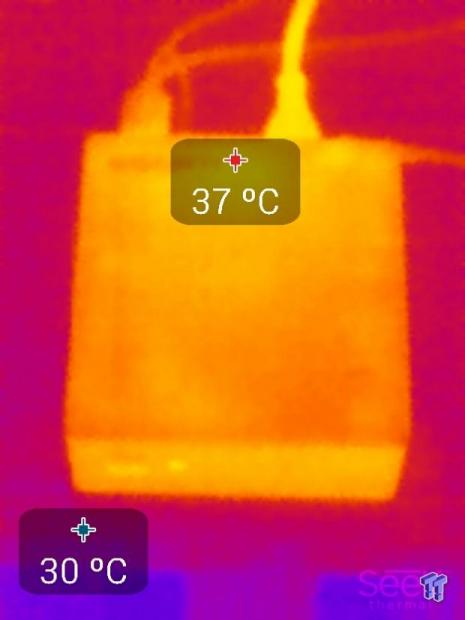
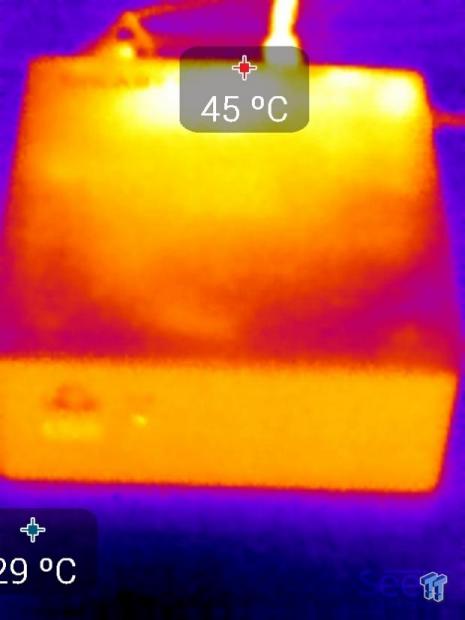
Here are some shots of the BXi7H-5500 at idle and load. I ran the AIDA64 stability test at the same time as 3DMark Vantage to load the CPU, memory, and graphics.
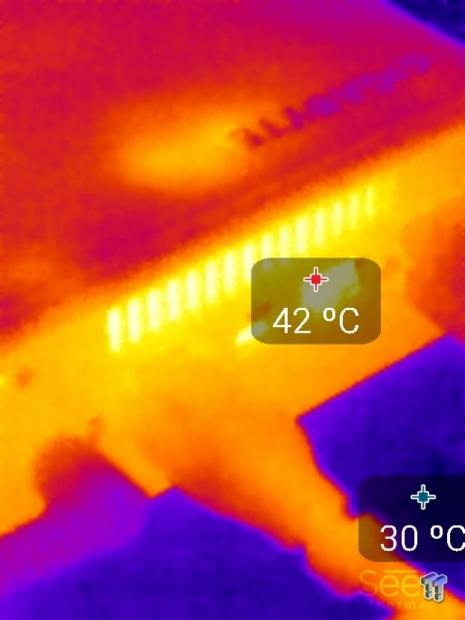
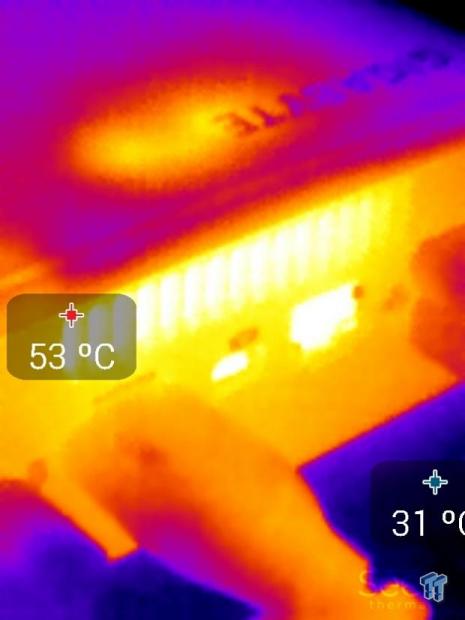
Here are some shots of the back of the unit where the exhaust fan blows.
Final Thoughts
GIGABYTE's BRIX BXi7H-5500 is one fast little machine. The extra frequency bins on the CPU make a very big difference in the benchmarks, but also in real-world testing. I could actually tell the difference between the NUC I had tested earlier and the BRIX I just finished testing. There is a slight real-world difference in that the BRIX with the i7 5500u is faster with programs like Photoshop; the response is almost instant. It is also apparent that this BRIX isn't just a HTPC; it is much more than that.
This BRIX is a desktop replacement for those who desire speed. The 2.5 inch drive bay with the standard 2.5 inch SATA attachment proves this fact, allowing you to plug in any 2.5 inch drive. This means you can toss in a 1TB HDD or SSD. This BRIX has dual storage options with the mSATA slot and the SATA connection as well, which makes it very versatile. I also liked that it had normal HDMI, and not mini-HDMI, which required me to go out and buy a mini-HDMI to HDMI cable.

The cost of the BRIX BXi7H-5500 is a bit on the high side; although the MSRP is still unknown, it is expected to be over $500 USD. While the cost is expected to be high, you will get a lot of versatility when it comes to storage. I also liked the NFC tag system. I had not really used an NFC tag system before, and I have to say it is the perfect technology for lazy people. If you don't feel like typing out Netflix.com, you can program a NFC tag to do it for you. I can buy many tags and program them to do a variety of things like unlock the computer or start a program.
GIGABTYE has done a nice job with this small form factor PC, and while it does have active cooling, it never gets to the point where it's too loud. The i7 5500U CPU provides exceptional performance in a low-power package, leading in almost all of the benchmark tests. If price isn't an issue and size is, then the BXi7H-5500 offers superlative versatility in a package smaller than a real brick, yet with the power to get things done.

